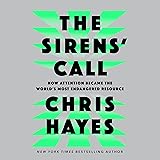Table of Contents
Welcome to the School of Economy, where we make complex financial concepts easy to understand! Today, we're going to dive into the world of Mortgage Maneuvering: Finding the Right Loan for Your Dream Home. Whether you're a first-time homebuyer or looking to refinance, understanding the ins and outs of mortgages is crucial to making the best financial decision for your future.
The Basics of Mortgages
Let's start with the basics. A mortgage is a loan that you take out to buy a home. It's a big commitment, but it's also an investment in your future. When you take out a mortgage, you agree to pay back the loan amount plus interest over a set period of time, usually 15 to 30 years.
- Principal: This is the amount of money you borrow to buy your home.
- Interest: This is the cost of borrowing money from the lender.
- Term: This is the length of time you have to repay the loan.
- Down Payment: This is the initial payment you make towards the purchase of the home.
When it comes to mortgages, there are two main types: fixed-rate and adjustable-rate. A fixed-rate mortgage has an interest rate that stays the same for the entire term of the loan, providing stability and predictability in your monthly payments. On the other hand, an adjustable-rate mortgage has an interest rate that can change periodically, which can result in lower initial payments but also carries the risk of rates increasing in the future.
Now that we've covered the basics, let's talk about how to find the right mortgage for your dream home.
Factors to Consider When Choosing a Mortgage
When it comes to choosing a mortgage, there are several factors to consider to ensure you're getting the best deal possible. Here are some key considerations:
- Interest Rate: The interest rate on your mortgage will have a significant impact on your monthly payments and the total amount you'll pay over the life of the loan. It's important to shop around and compare rates from different lenders to find the best deal.
- Loan Term: The length of your loan term will affect your monthly payments and the total amount of interest you'll pay. A shorter loan term will result in higher monthly payments but lower overall interest costs, while a longer loan term will have lower monthly payments but higher total interest costs.
- Down Payment: The size of your down payment will affect the amount of your loan and the interest rate you're offered. A larger down payment can help you secure a lower interest rate and reduce the amount of interest you'll pay over the life of the loan.
- Credit Score: Your credit score plays a significant role in the interest rate you're offered on a mortgage. Lenders use your credit score to assess your creditworthiness and determine the risk of lending to you. A higher credit score can help you qualify for a lower interest rate.
It's also important to consider additional costs associated with buying a home, such as closing costs, property taxes, and homeowners insurance. These expenses can add up quickly, so it's essential to budget for them when determining how much you can afford to spend on a home.
Now, let's take a look at some statistics to provide valuable insights into the mortgage market in Canada and the United States.
In Canada, the average mortgage rate for a 5-year fixed-rate mortgage is currently around 2.5%, while in the United States, the average rate is slightly higher at around 3%. These rates can vary depending on factors such as the lender, the borrower's credit score, and the current economic climate.
According to a recent survey, the average down payment for first-time homebuyers in Canada is around 7%, while in the United States, it's slightly higher at around 13%. This highlights the importance of saving for a down payment to secure a more favorable mortgage rate.
Now that we've covered the basics and key factors to consider when choosing a mortgage, let's move on to some practical exercises to empower you in applying these concepts to your daily life.
Exercise 1: Research mortgage rates from different lenders in your area and compare them to find the best deal for your dream home.
Exercise 2: Calculate how much you can afford to spend on a home based on your income, expenses, and savings goals. Consider factors such as down payment size, loan term, and interest rate.
By taking the time to understand the mortgage market and carefully consider your options, you can find the right loan for your dream home and set yourself up for financial success in the long run. Happy house hunting!
I'll conclude by adding that I'm doing my best to clarify and simplify these topics. But remember that these little essays are only the beginning, and I encourage you to continue reading, learning, and exploring. To assist you, here are a few books about economics that will prepare you for your journey into the world of finance:













4s6ekt